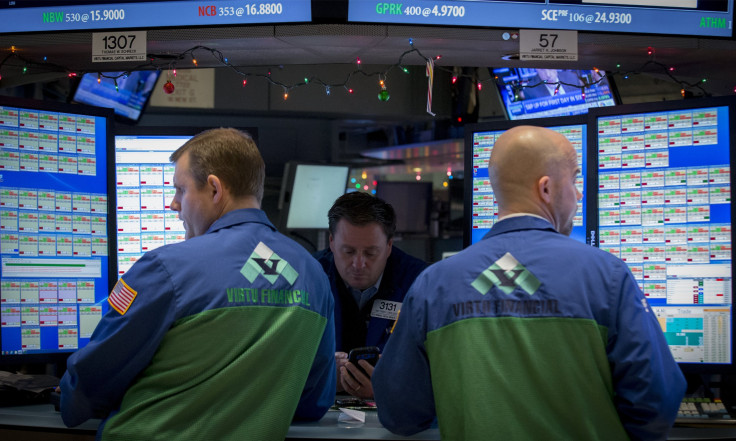Dow Jones Industrial Average Jumps On Positive Jobs Report, Stabilizing Oil Prices, Faith In European Central Bank Actions

The Dow Jones Industrial Average, which measures the share prices of 30 large industrial companies, closed up 1.23 percent to 17,584.52 Wednesday, capping a five-day losing streak following a report that businesses increased hiring last month. Investors also took advantage of a market selloff in recent days over oil price jitters.
New York markets closed up Wednesday after European markets reflected confidence that the eurozone’s central bank would intercede to check negative inflation. Investors also took advantage of a market selloff in recent days over oil price jitters.
All three major U.S. markets were up over 1 percent, led by the tech-heavy Nasdaq’s 1.26 percent rise to 4,650.47. The S&P500 jumped 1.16 percent to 2,025.90.
The December ADP report, a private survey of business hiring, that was released Wednesday – two days before the release of the Department of Labor’s monthly jobs report – shows companies increasing their payrolls by 241,000, above the analysts’ forecast of 225,000.
"Some of [Wednesday’s bounce] is from the ADP report, but it's also a matter of the market getting oversold over the last few days," Jeff Kravetz, regional investment director at U.S. Bank Wealth Management, told The Associated Press.
Meanwhile, major European markets closed up led by Britain's FTSE, which gained 0.84 percent to 6,419.83 after weak inflation figures for the region boosted hope the European Central Bank would adopt a monetary stimulus policy similar to the United States' policy to help stave off deflation.
U.S. crude prices gained 1.13 percent on Wednesday to $48.47, capping a four-day losing streak that put downward pressure on the stock markets. Brent crude, the global benchmark oil price, was down by a third of a percentage point, closing at $50.93. The price had dipped below $50 for the first time since May 2009, but crawled back above the $50 mark.
Stocks reacted positively to the release of the minutes from the Federal Reserve’s December meeting. The transcript is the most recent glimpse into U.S. monetary policy, and investors embraced comments by the policymakers expressing concern over weakness in global markets despite the belief that lower oil prices are ultimately good for the U.S. economy.
A cautionary outlook means the Fed is less likely to begin raising the benchmark interest rate this summer as many analysts are predicting. The interest rate has been between zero and 0.25 percent since 2008, making it less expensive to borrow money to run businesses or to take out a home mortgage. But inflation persists below the 2 percent target that would trigger a decision to raise rates.
© Copyright IBTimes 2024. All rights reserved.






















